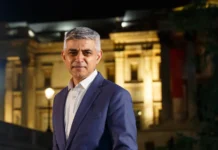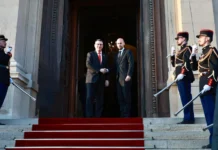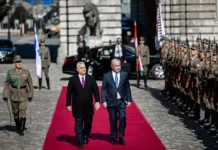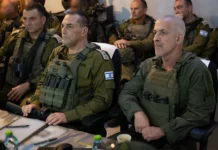Earlier this month police in Gothenburg granted the Nordic Resistance Movement (NMR) permission to march in an area near the synagogue on September 30th after denying a previously requested route through main avenue Kungsportsavenyn.
Sweden’s main organization for Jews appealed the approved route however, as did Gothenburg Book Fair, where the march was due to start. On Monday, Gothenburg Administrative Court announced that it had changed the police decision on the route, citing risks to public order and security.
Demonstrators will no longer be allowed to gather outside the book fair’s location, nor will they pass near the synagogue, with the route almost halved.
“In its decision the Administrative Court has weighed up a number of factors. Among the considerations are that the demonstration will take place on a day where the Book Fair, with many visitors, is ongoing and there will therefore be a lot of people on Korsvägen. Also taken into consideration is that the Jewish Community in Gothenburg is celebrating Yom Kippur near the previously decided route, and that central Gothenburg is also visited by a lot of people on a Saturday,” the court said in a statement.
The court decided that the route should be shortened due to security and public order concerns, with the risk of counter-demonstrations also taken into account. The march will now start 300 metres further north and end outside the Gamla Ullevi stadium.
Police in Gothenburg were criticized last week for allowing another NMR march to take place in the city despite the protesters not having an official permit. The neo-Nazi group later said on its podcast that the march was a test of police capacity to intervene.
In the aftermath Swedish PM Stefan Löfven said he plans to invite centre-right opposition parties to discussions on how to counteract antidemocratic forces in the country.
Anti-racism foundation Expo this year named NMR as the driving force behind a surge in neo-Nazi activity in Sweden, with propaganda-spreading their most common form of activity.
“They’re at the most extreme end of this white supremacist area. There’s a lot of crime associated with them, they have a relationship with violence,” Expo researcher Jonathan Leman told The Local.


























